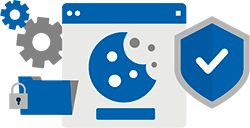Training and business training in innovation and sustainability

The General Directorate of Research, Innovation and Digital Transformation of the Government of the Balearic Islands, with the collaboration of the Bit Foundation, organizes a free course for companies that want to train in training and business training in innovation and sustainability.
It is a training provided by Eurecat and aimed at managers or those responsible for innovation, digitization or strategic planning, as well as those responsible for innovative projects in any sector of the activity.
During the course, tools and methodologies will be made known that companies can put into practice in their business activity, especially related to the development of strategies to guarantee long-term sustainability.
The training consists of 12 days of 180 minutes divided into two blocks of 80 minutes and a 20-minute break from 3:00 p.m. to 6:00 p.m.:
The training program is made up of four modules:
Module 1. Theoretical and conceptual framework - 24 and 26 October
1.1. Introduction to Sustainability and Innovation:
• Define sustainability and its importance in the business context.
• Explore the relationship between sustainability and innovation.
• Understand the benefits of integrating sustainability into organizational practices.
1.2. Sustainable development objectives (ODS):
• Familiarize participants with the Sustainable Development Goals of the United Nations.
• Identify the relevant SDGs depending on the industry and the context of the organization.
• Explore how innovation can contribute to achieving the SDGs.
Module 2. Sustainability in the business field – 31 October and 2, 7 and 9 November
2.1. Sustainable business models:
• Analyze different sustainable business models and their advantages.
• Explore case studies of organizations that have successfully implemented sustainable business models.
• Help participants in the development of sustainable business models adapted to the context of their organization.
2.2. Sustainable design of products and services:
• Integrate sustainability considerations in the design process of products and services.
• Identify methods to evaluate and reduce the environmental impact of products and services.
• Encourage the use of eco-design principles and life cycle thinking.
2.3. Green technologies and practices:
• Explore relevant emerging green technologies and practices.
• Identify opportunities to take advantage of green technologies to improve sustainability.
• Assess the feasibility and implementation strategies for the adoption of green technologies.
Module 3. Circularity as a corporate framework. Fundamentals and strategies – November 9, 14, 16, 21 and 23
3.1. Circular economy and resource efficiency:
• Introduce the principles of the circular economy and its potential for sustainable innovation.
• Identify strategies to improve resource efficiency, waste reduction and recycling.
• Encourage participants to develop circular economy initiatives within their organizations.
3.2. Implementation of a circularity plan.
• Contents of a circularity plan.
• Development of a circularity plan.
• Planning a circularity plan.
• Monitoring and control.
• Good practices
Module 4. Monitoring and communication of sustainability – November 23, 28 and 30
4.1.Measure and report sustainability performance:
• Introduction of key sustainability metrics.
• Establish methods to measure and track sustainability performance.
• Develop sustainability reports and communication strategies to share
achievements and progress.
4.2. Sustainability communication
4.3. Practical cases and good practices:
• Analyze real case studies of organizations that have successfully integrated sustainability and innovation.
• Identify best practices and lessons learned applicable to the participants' industry and context.
• Conclusions and debate.


